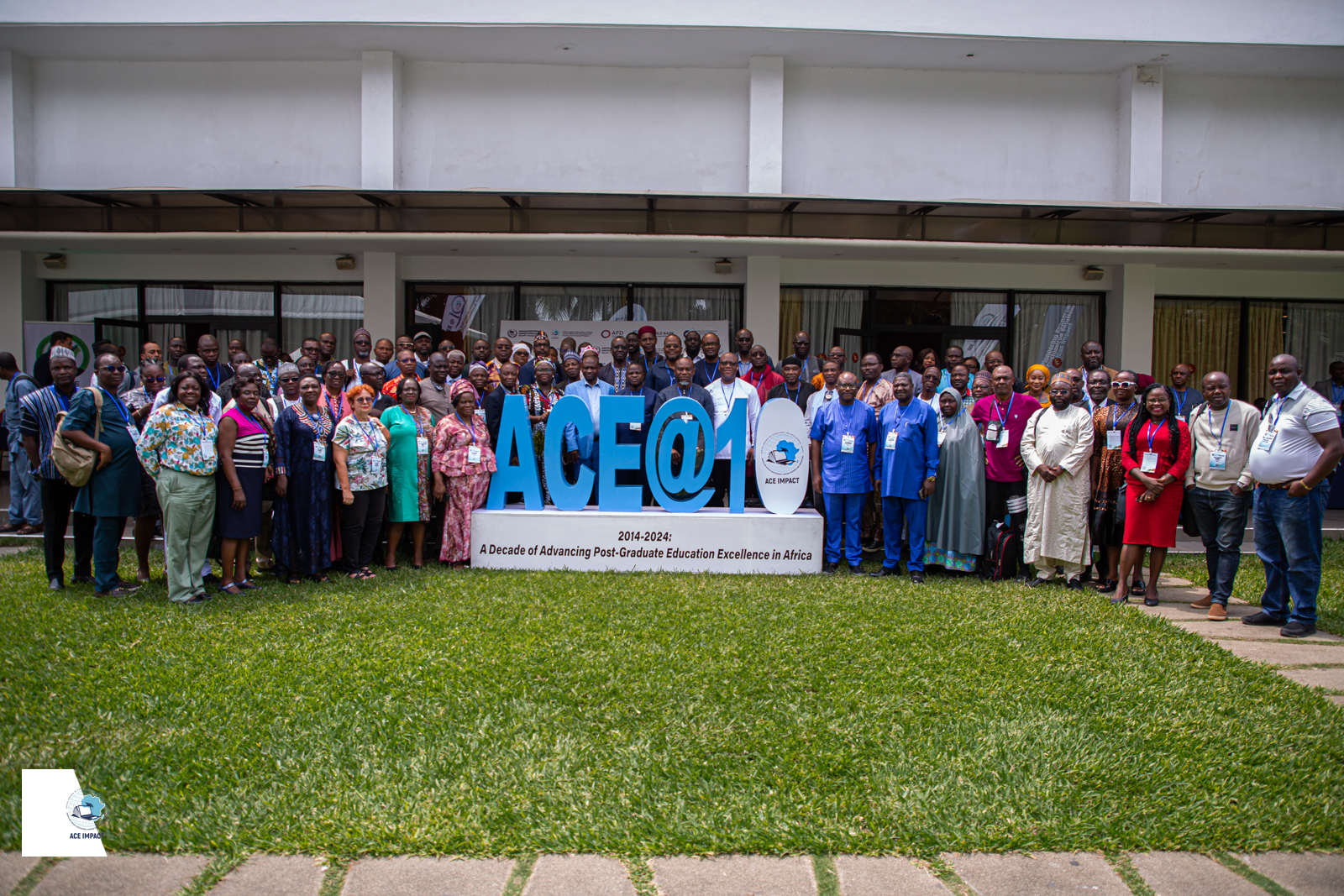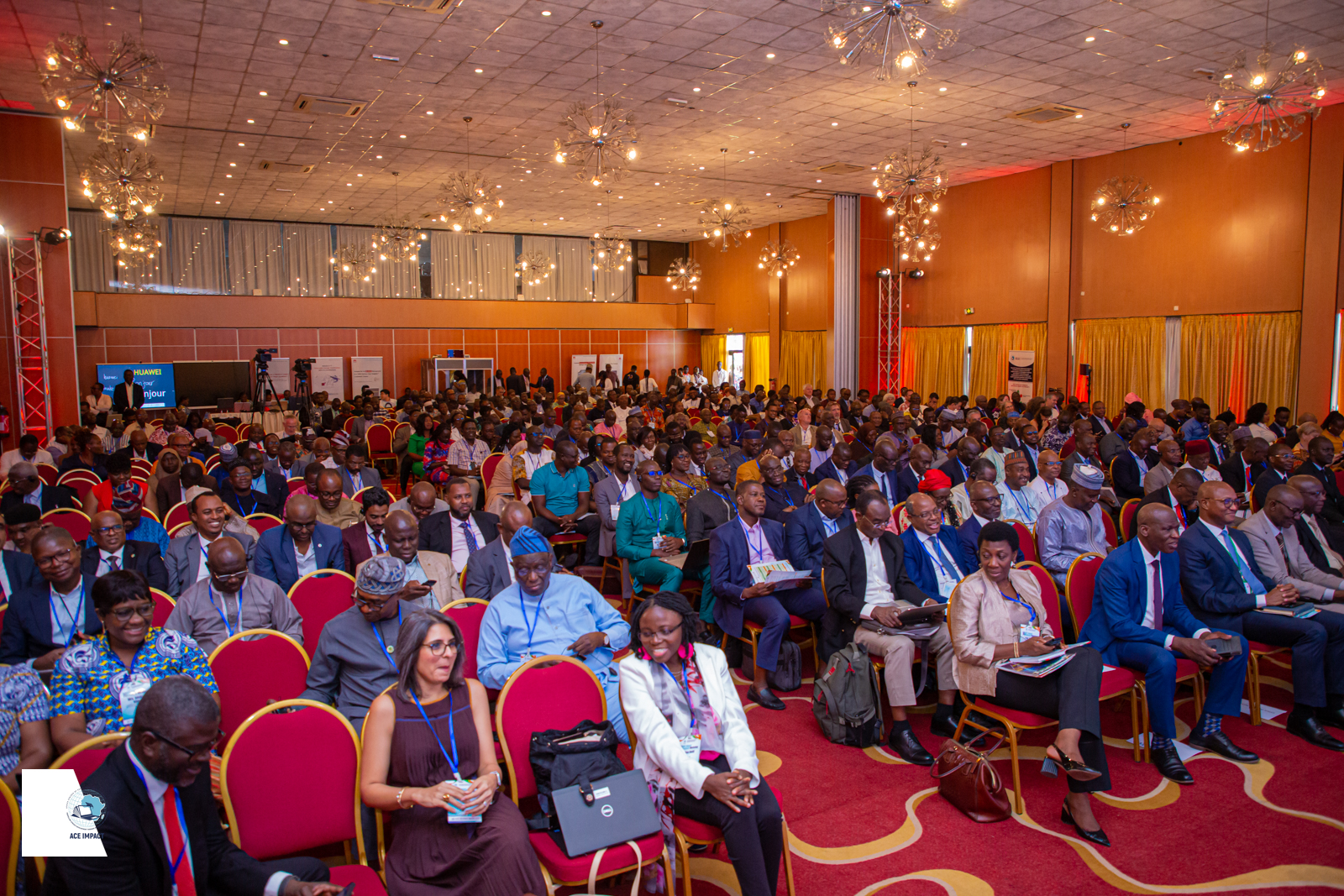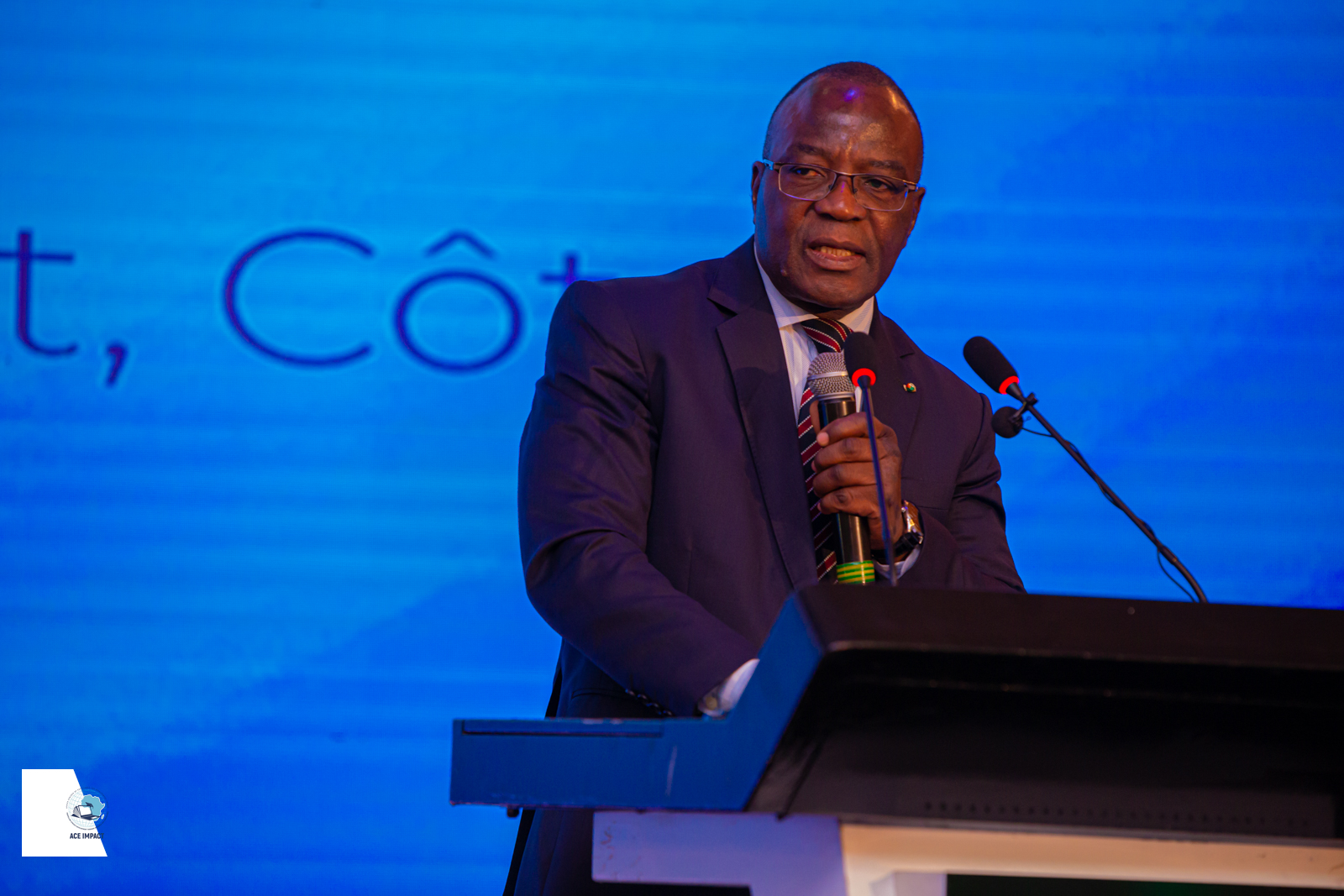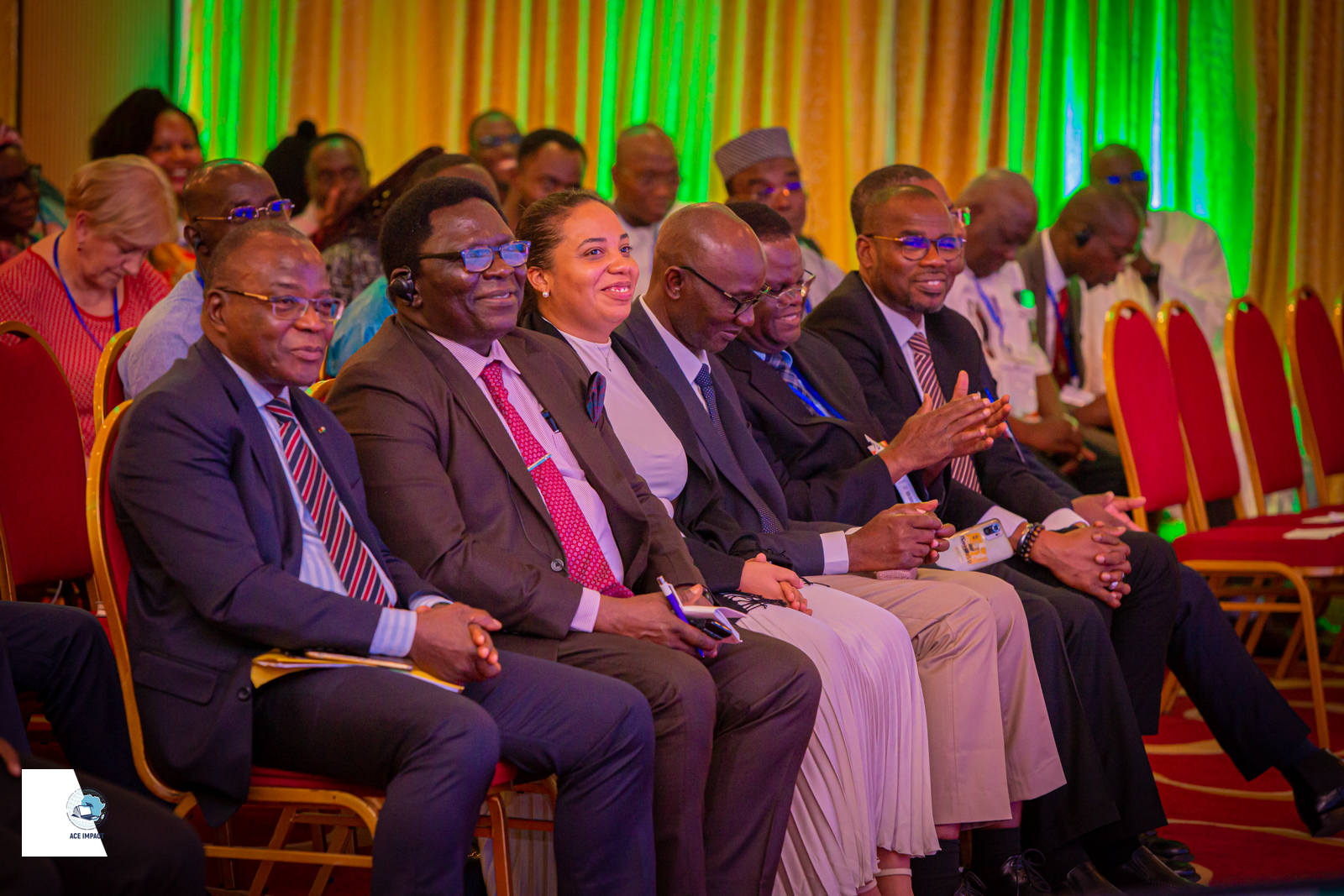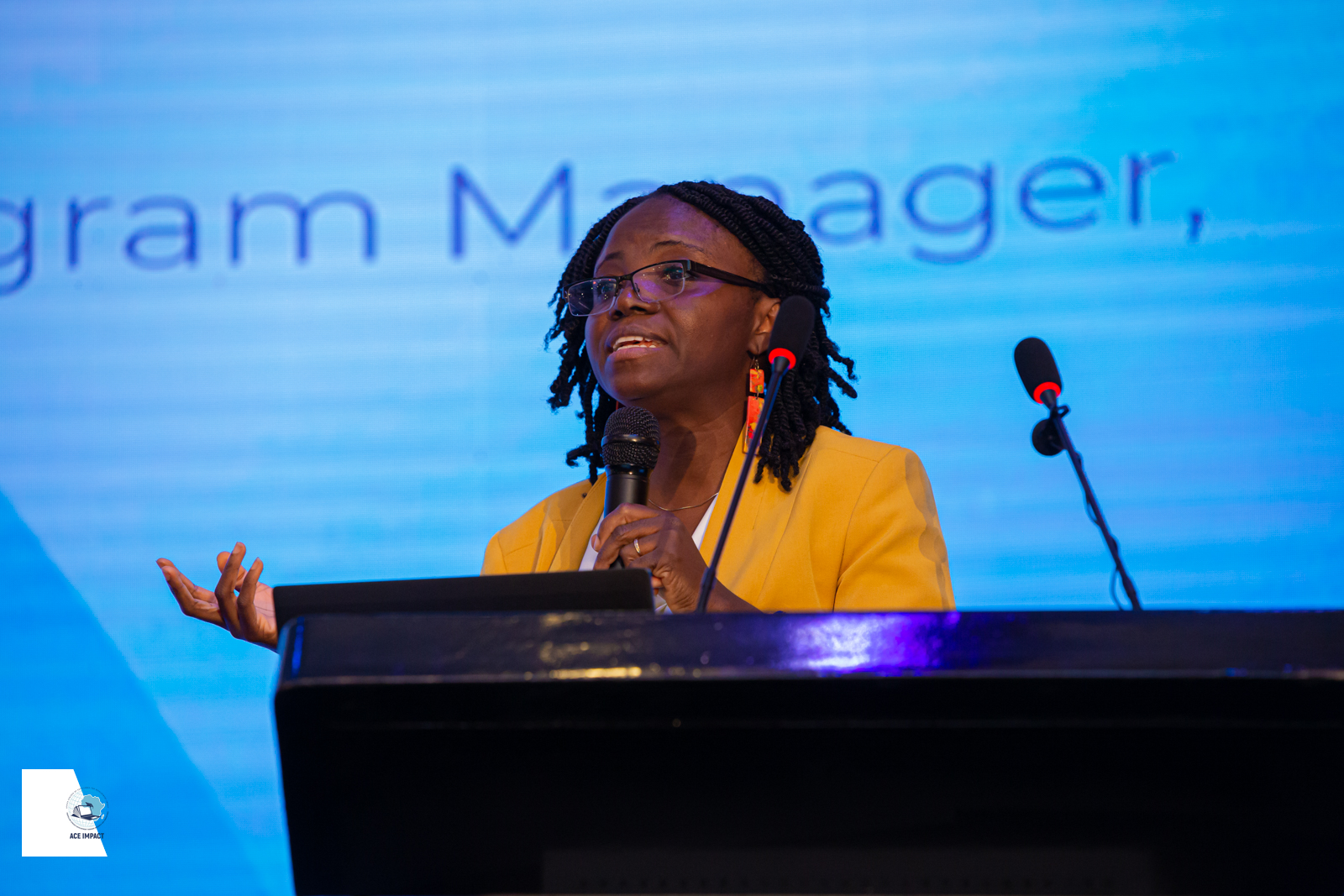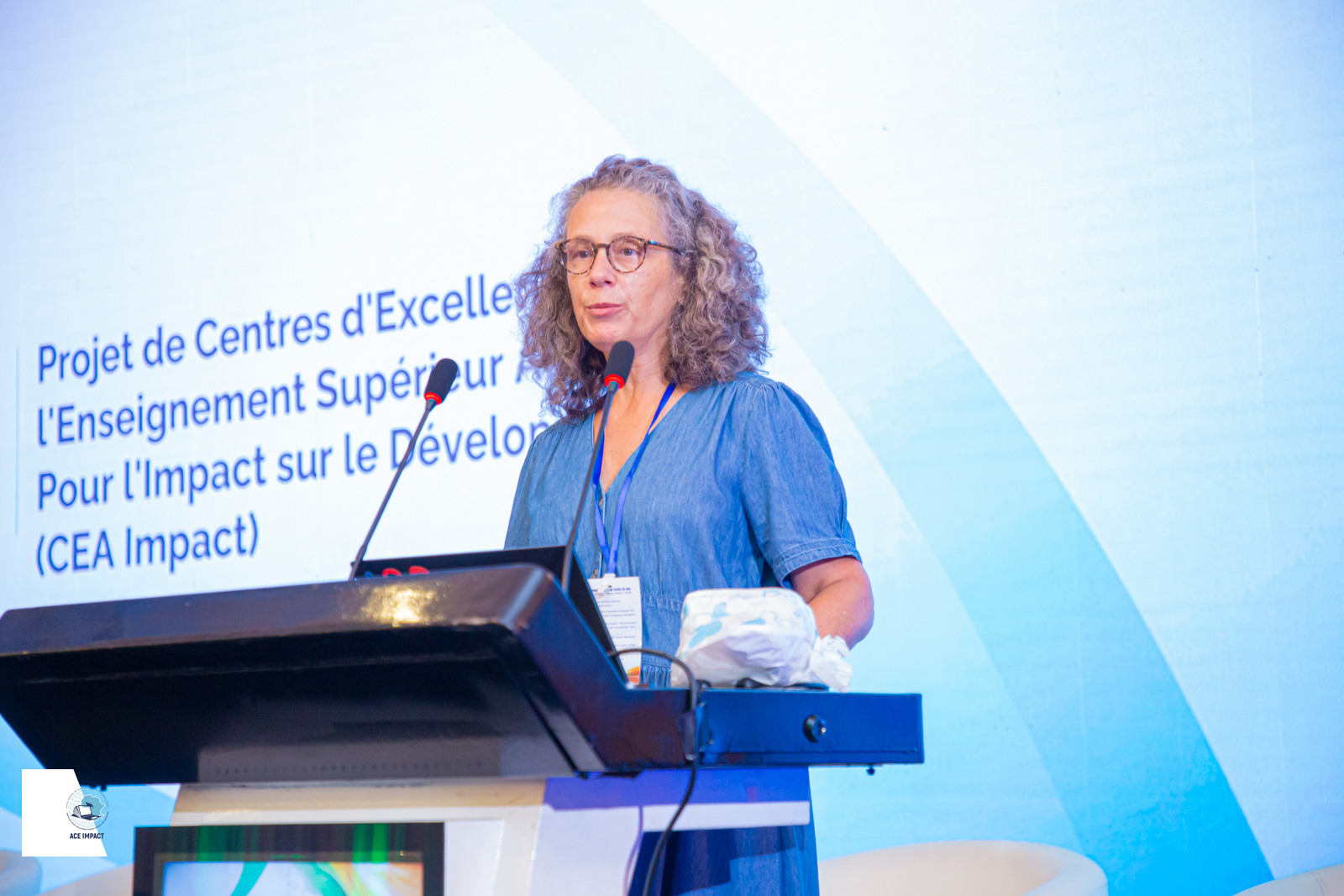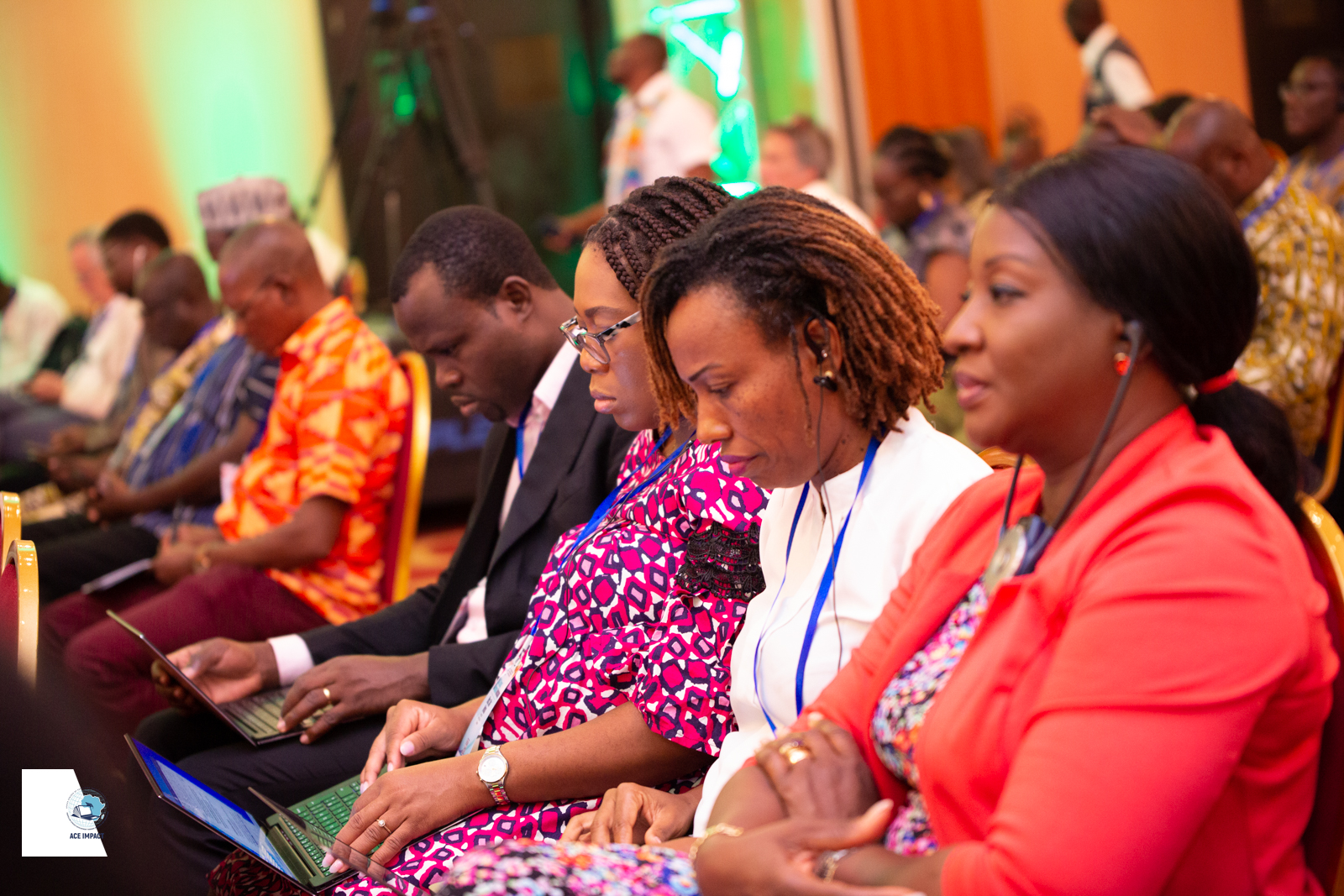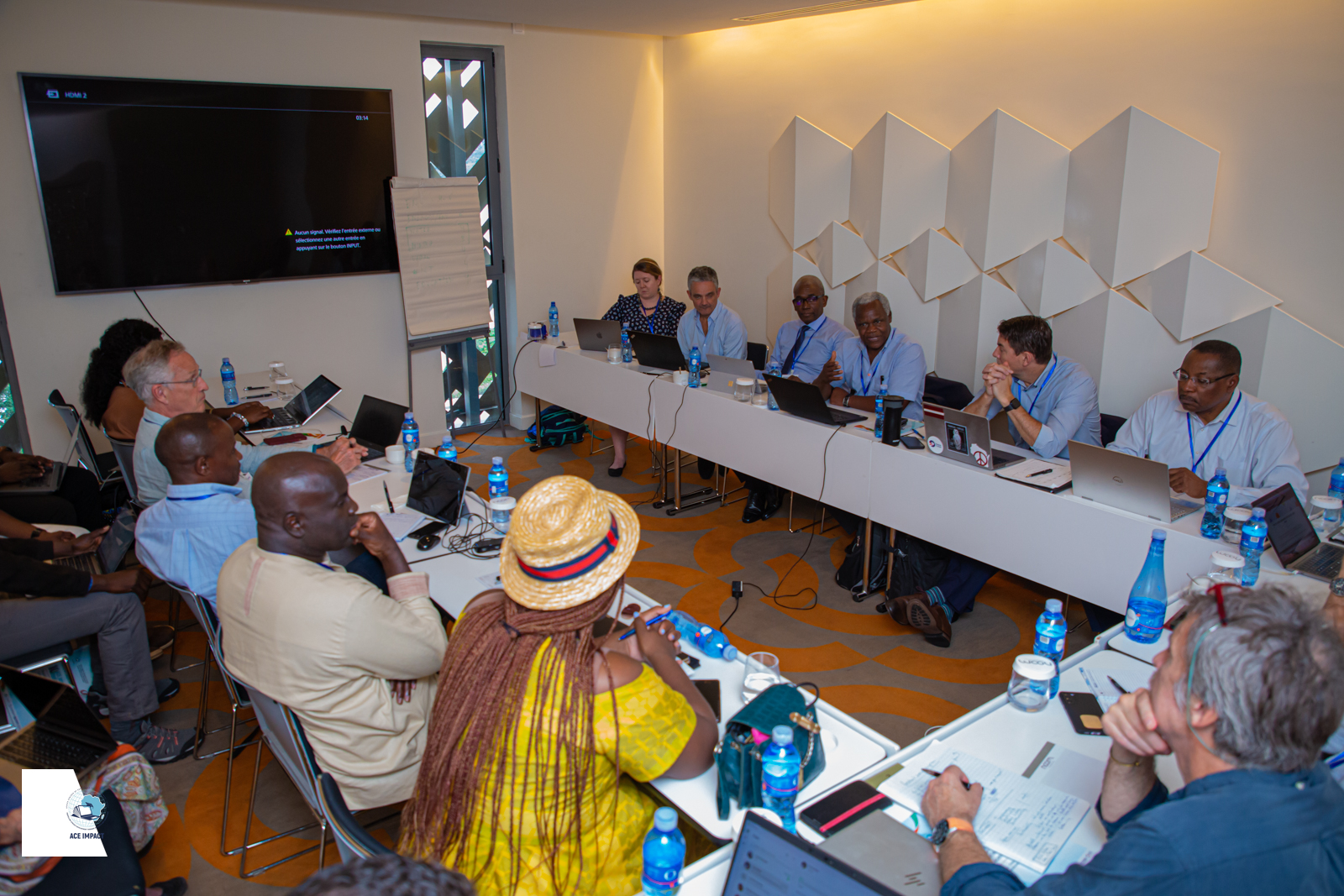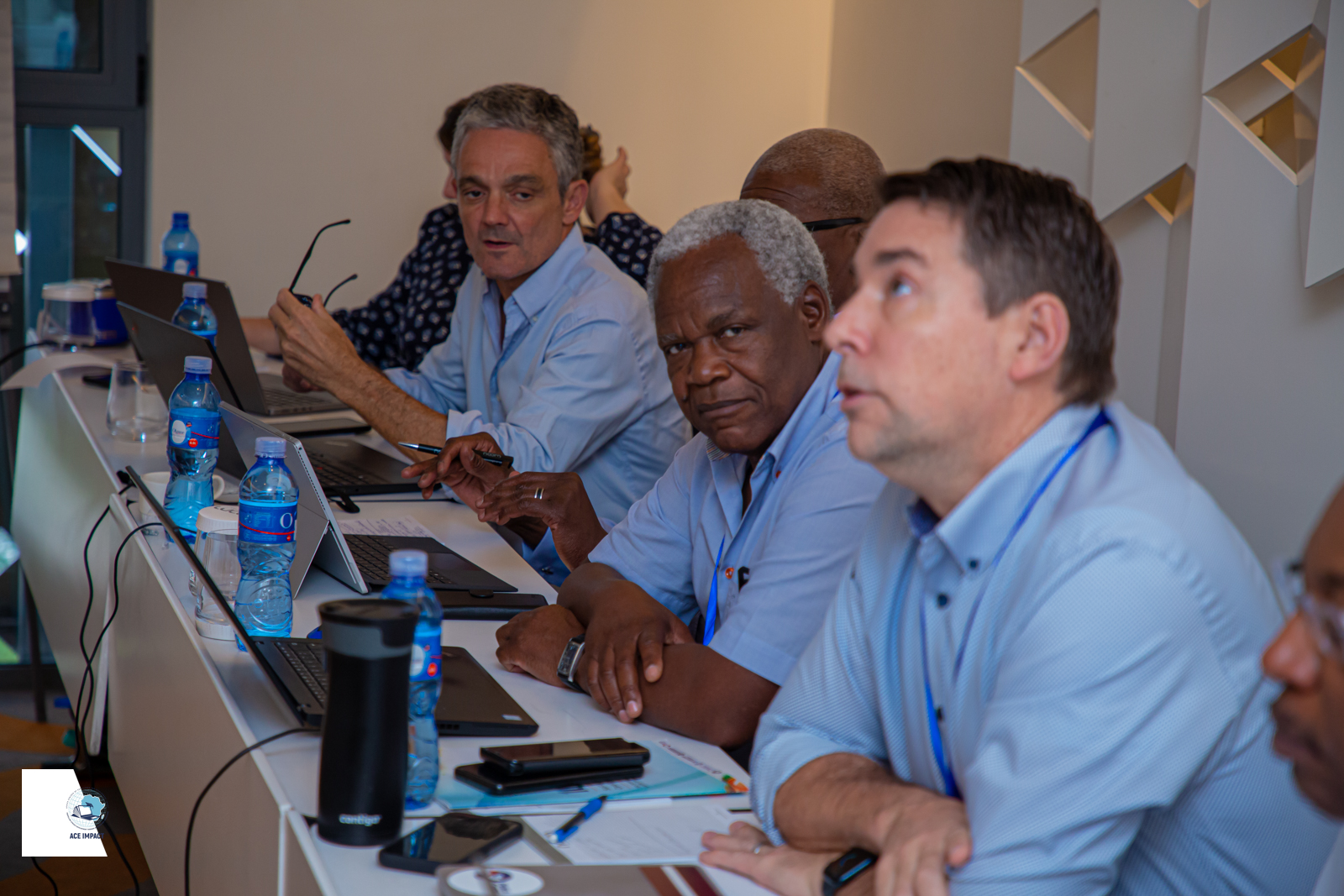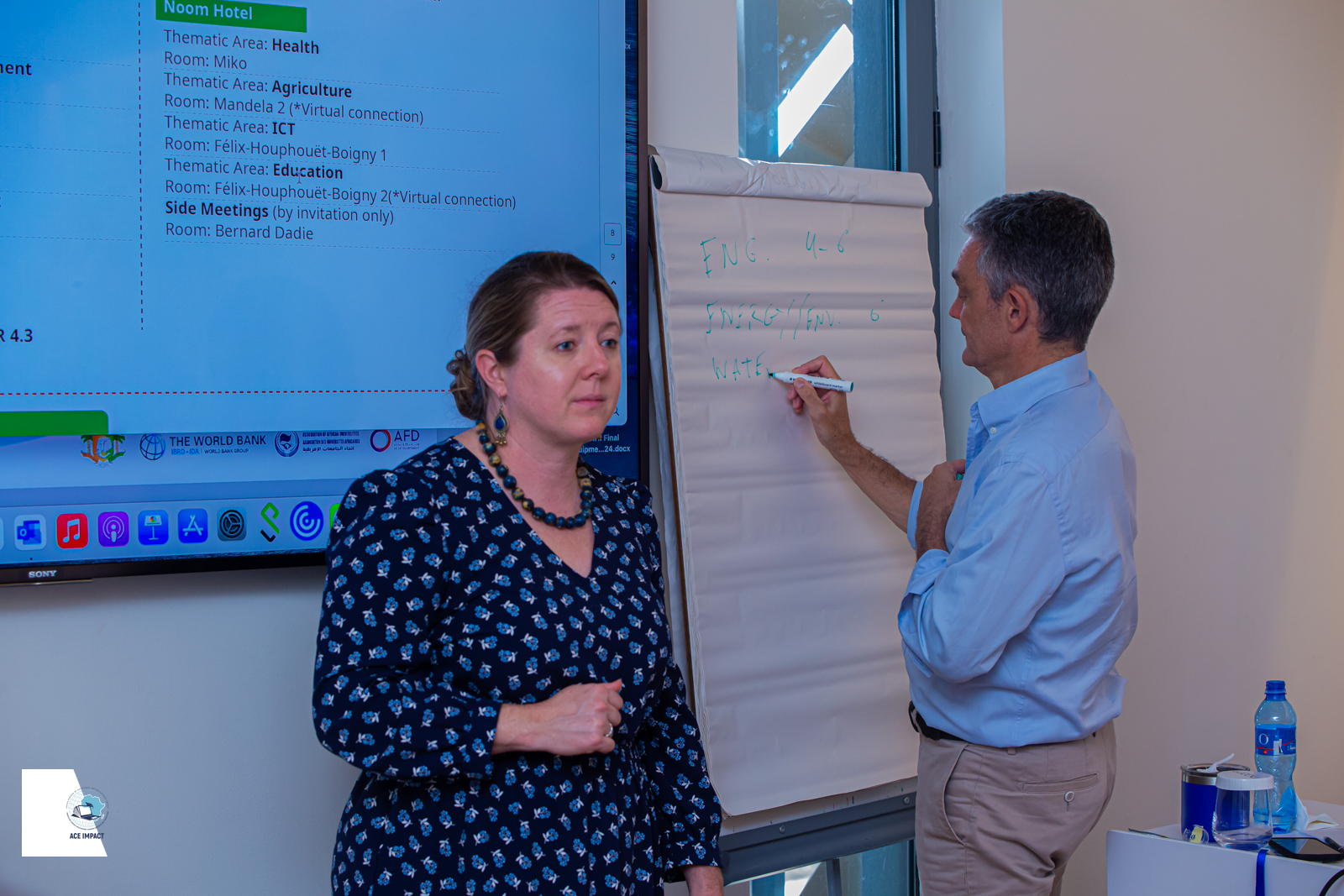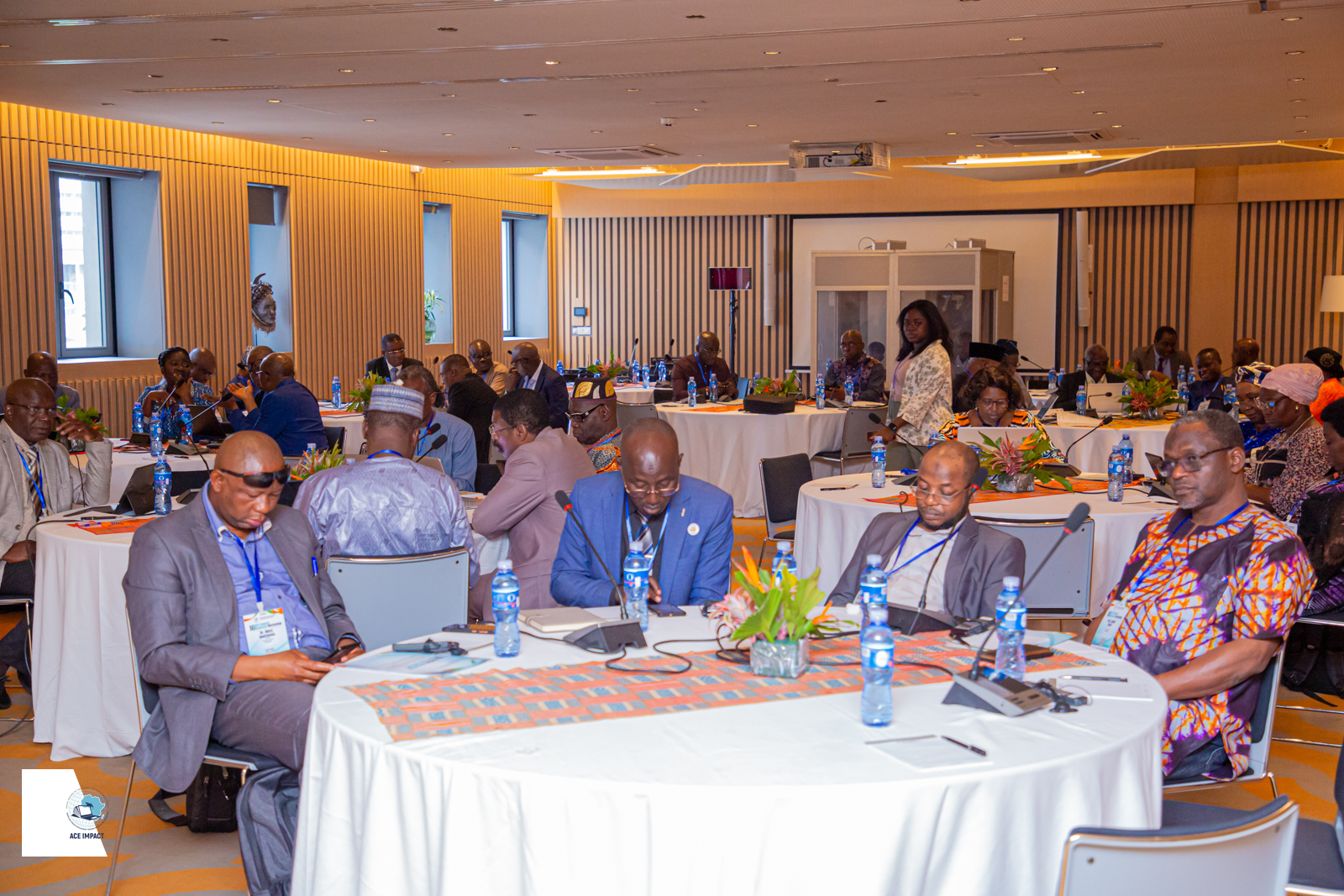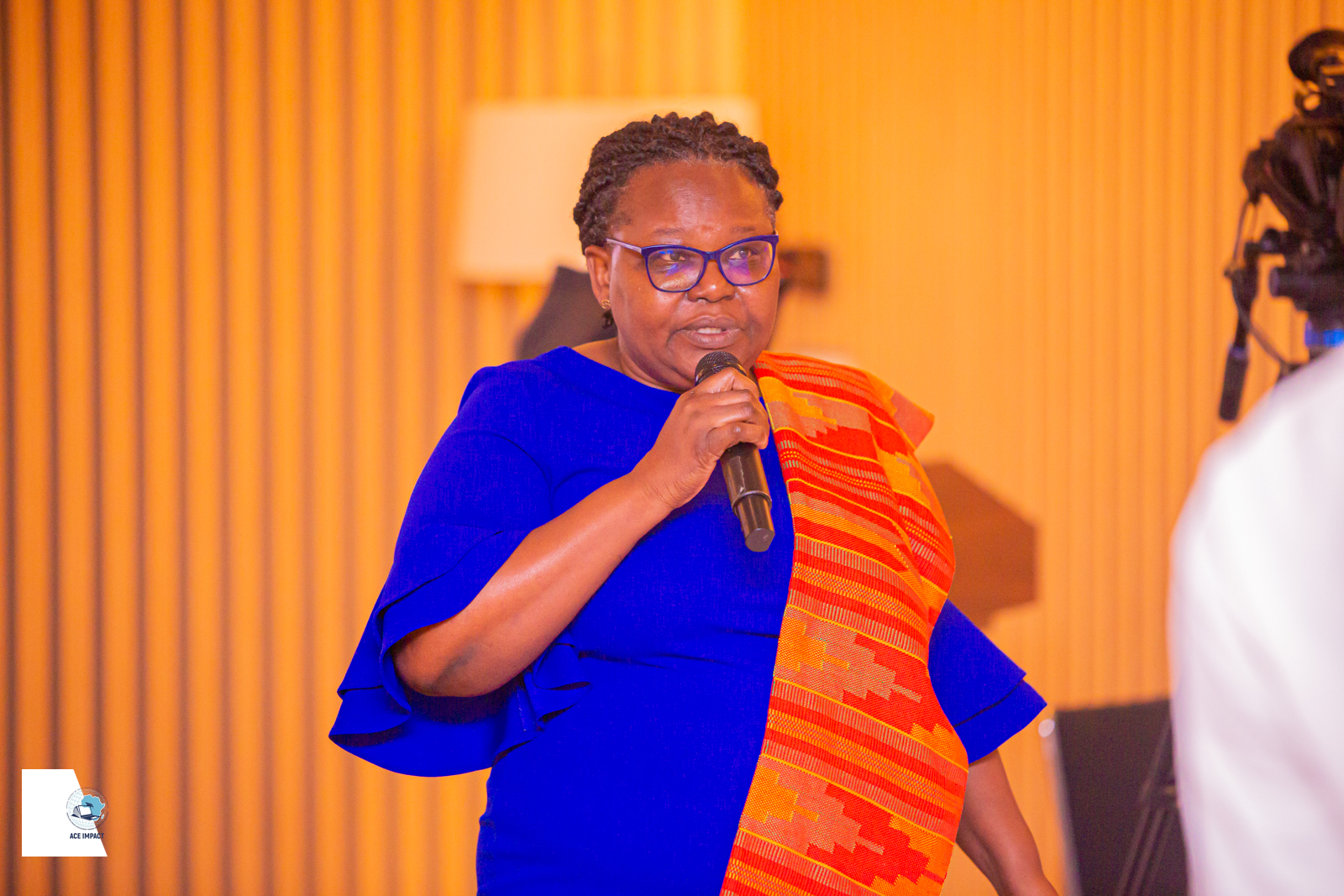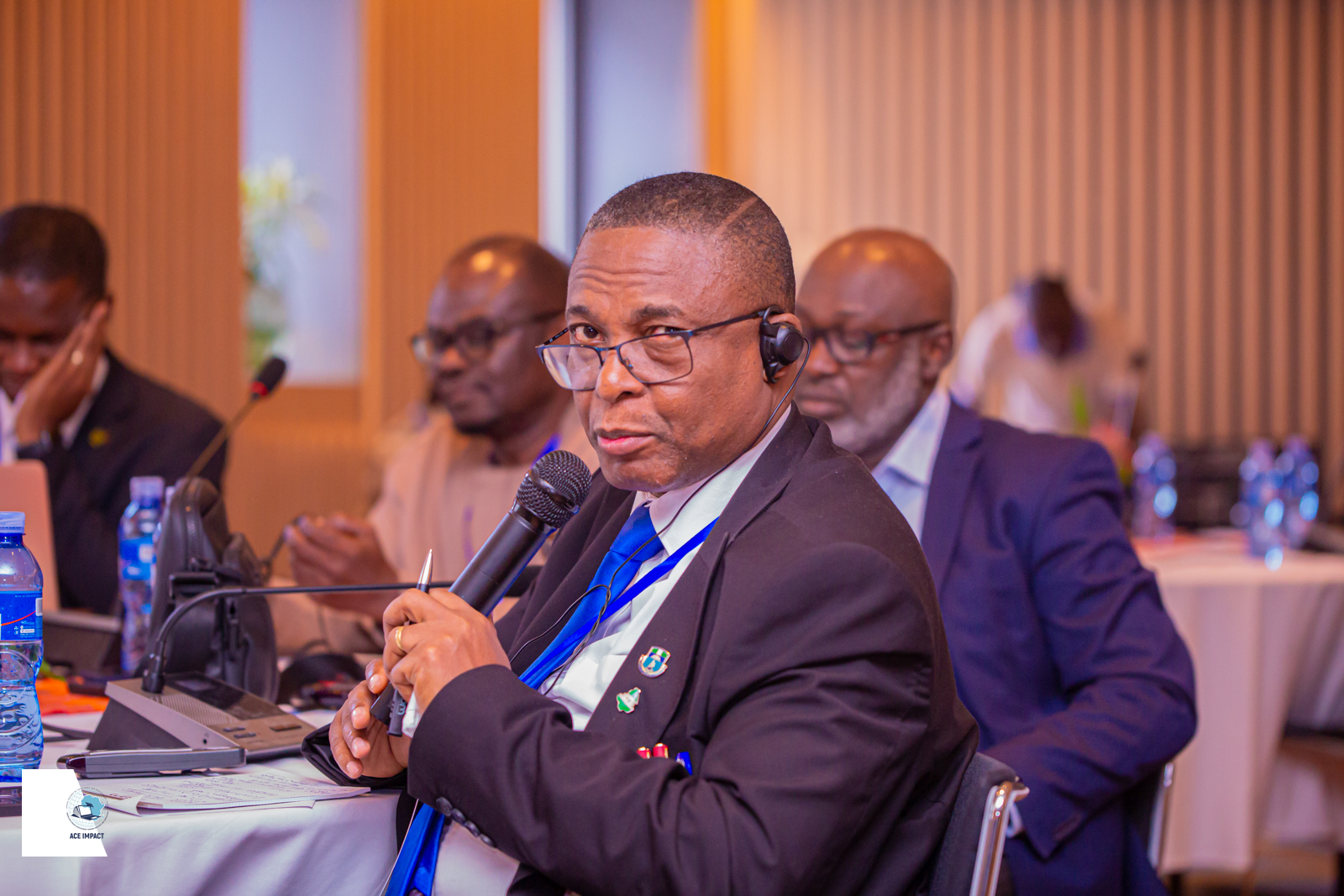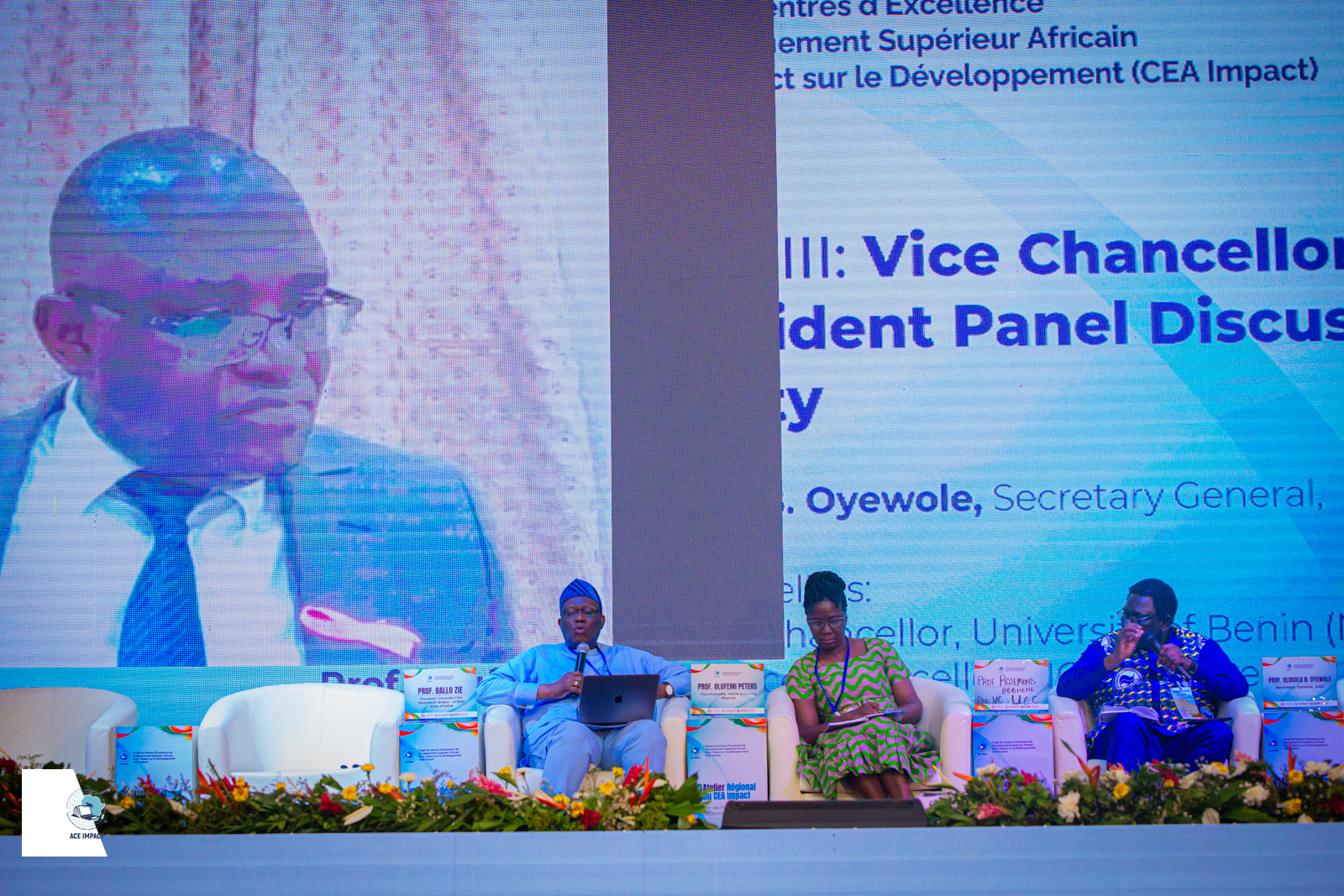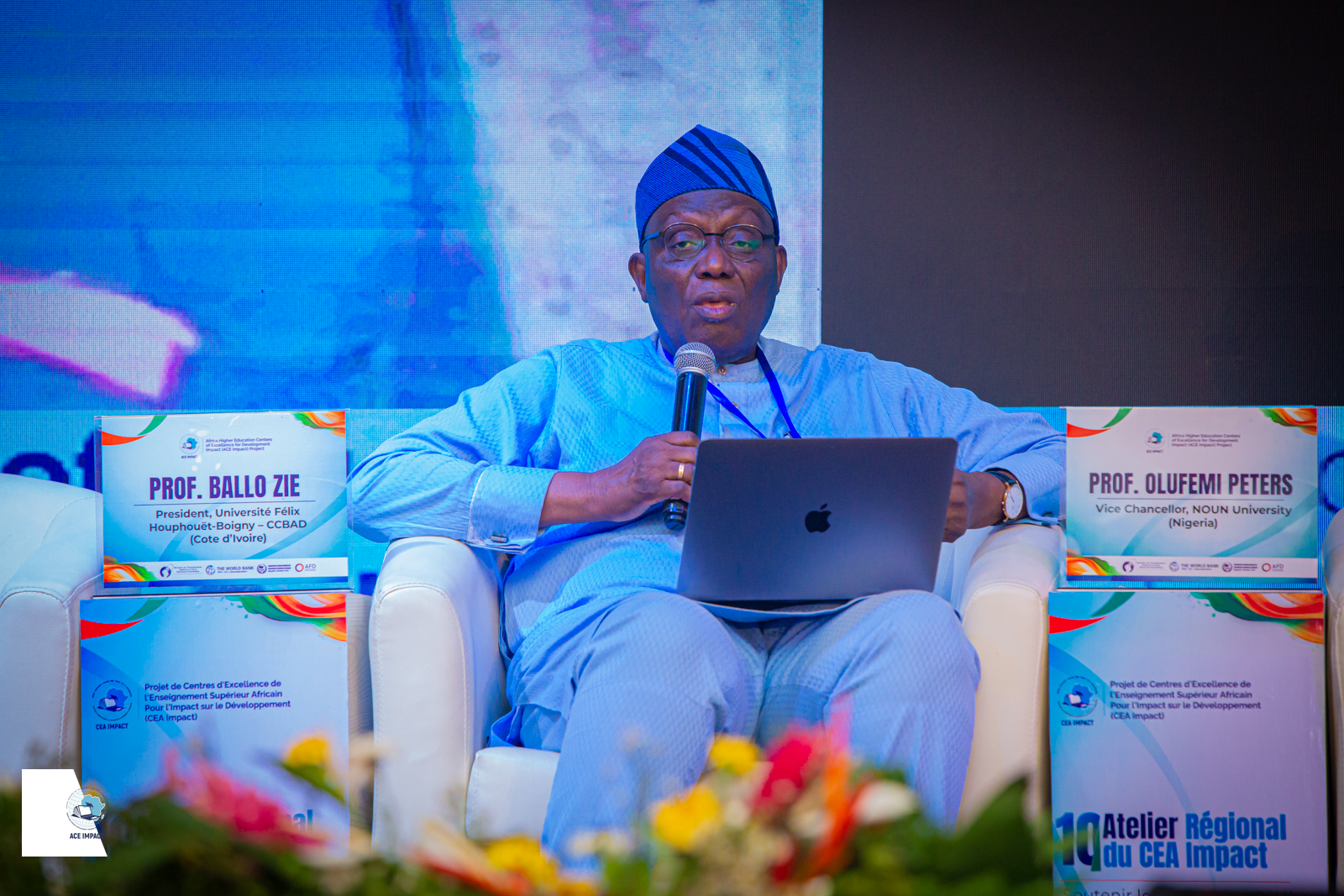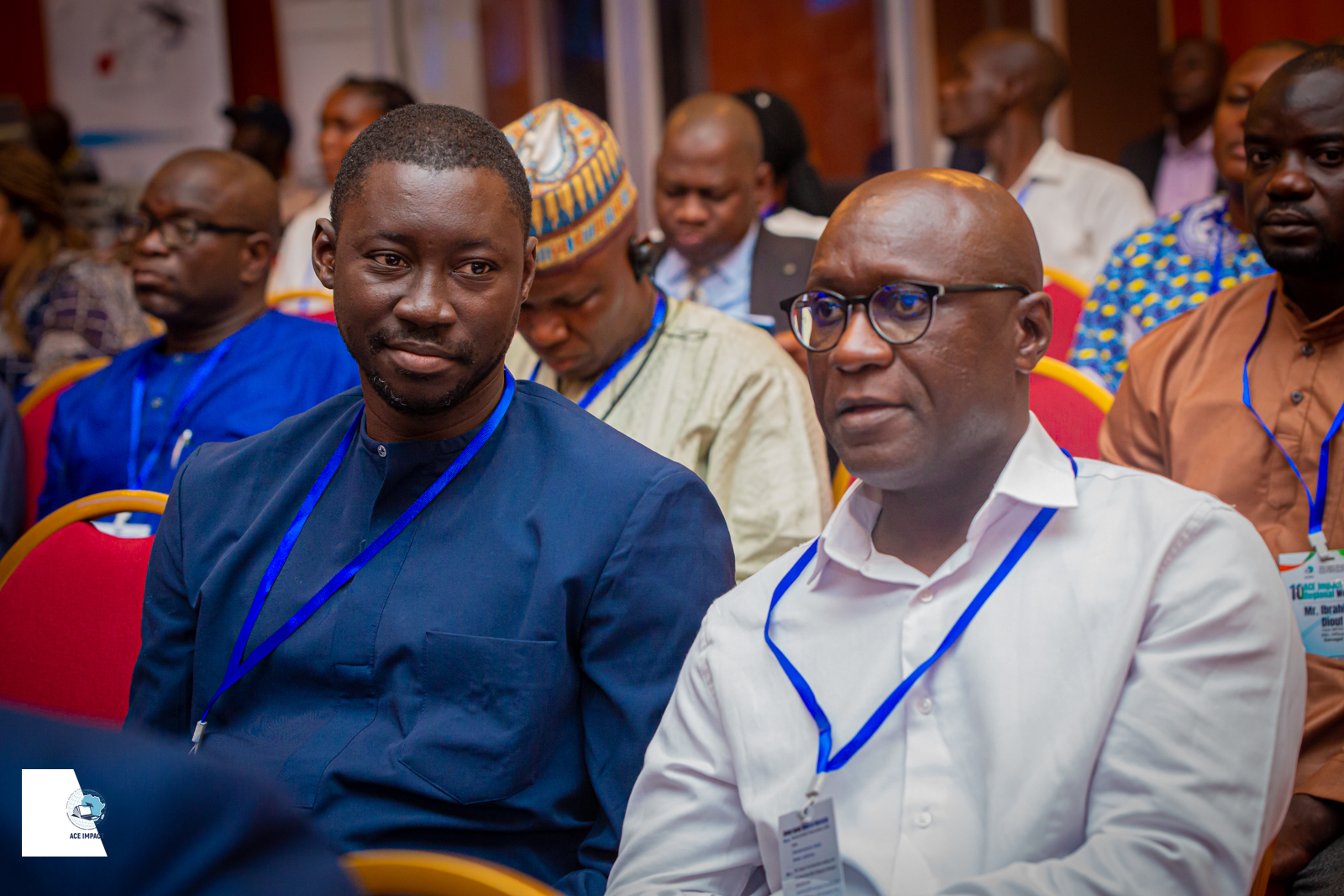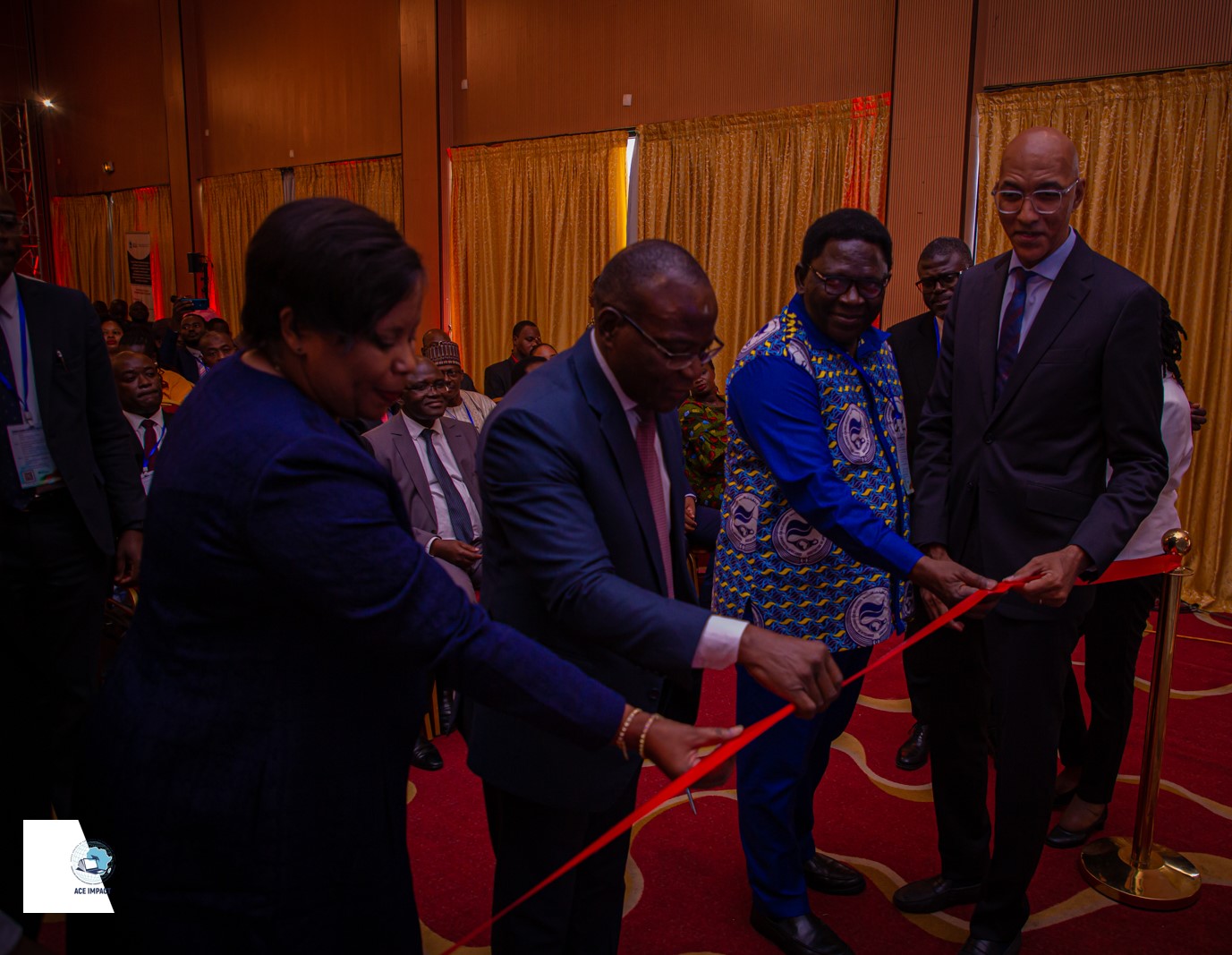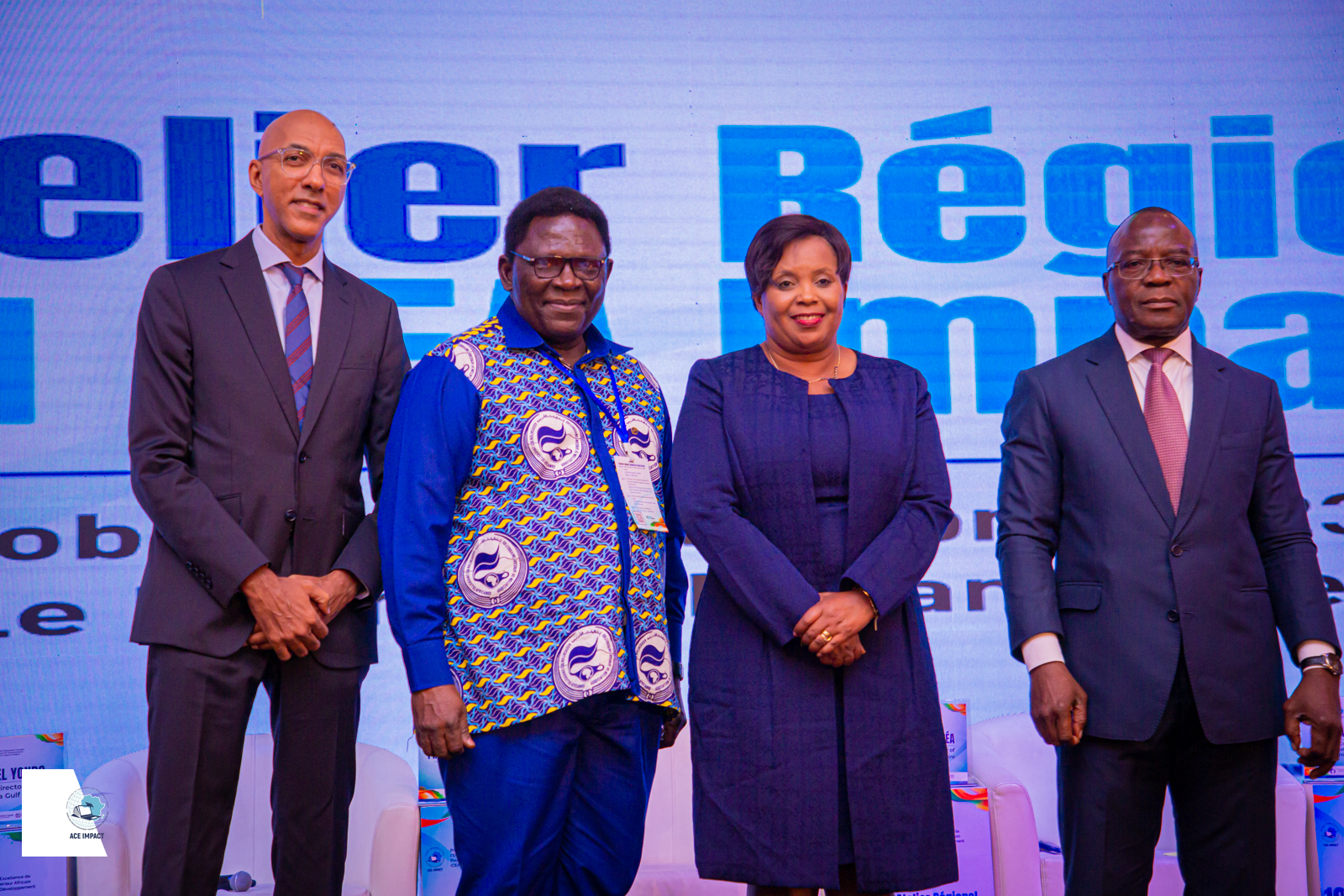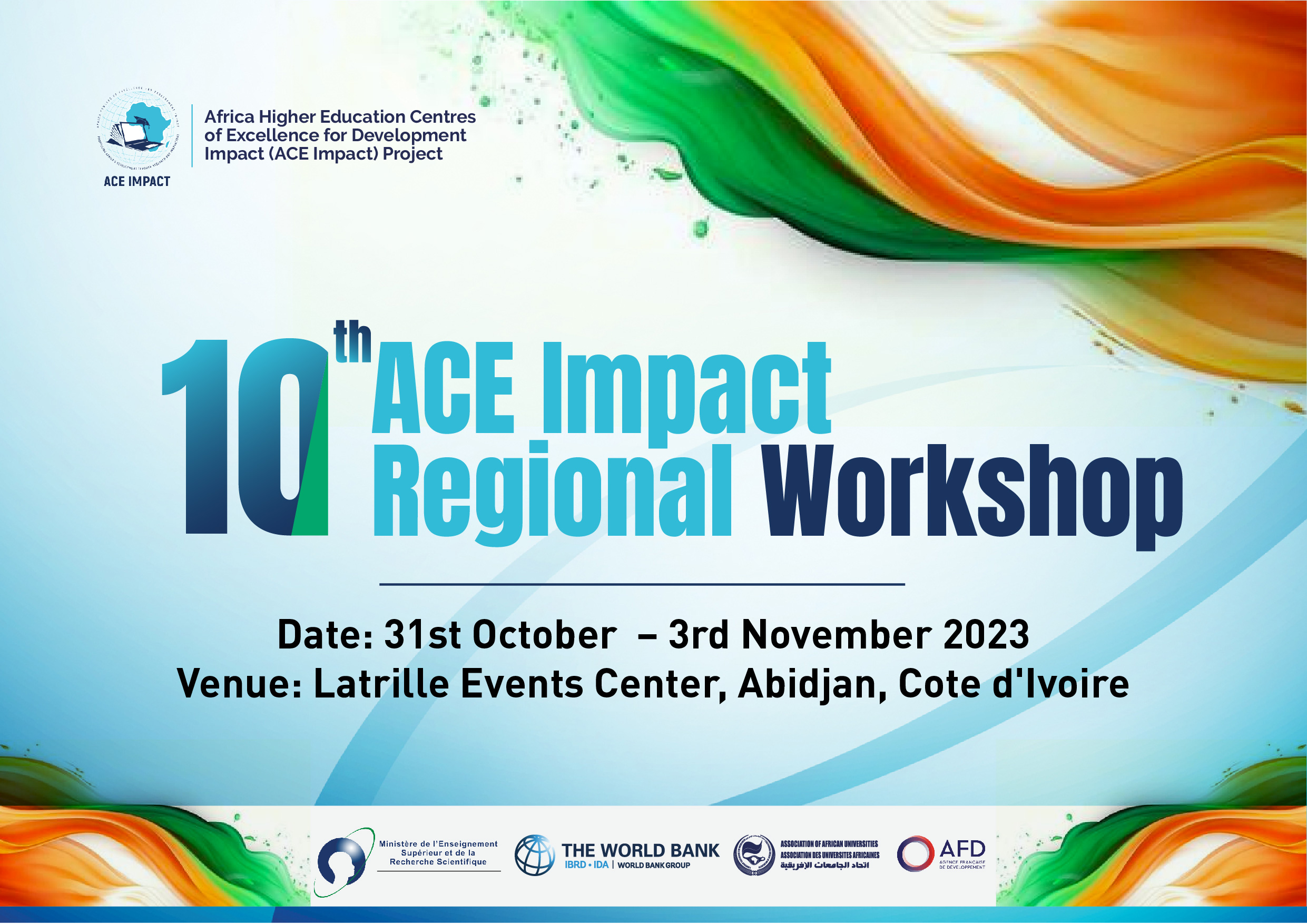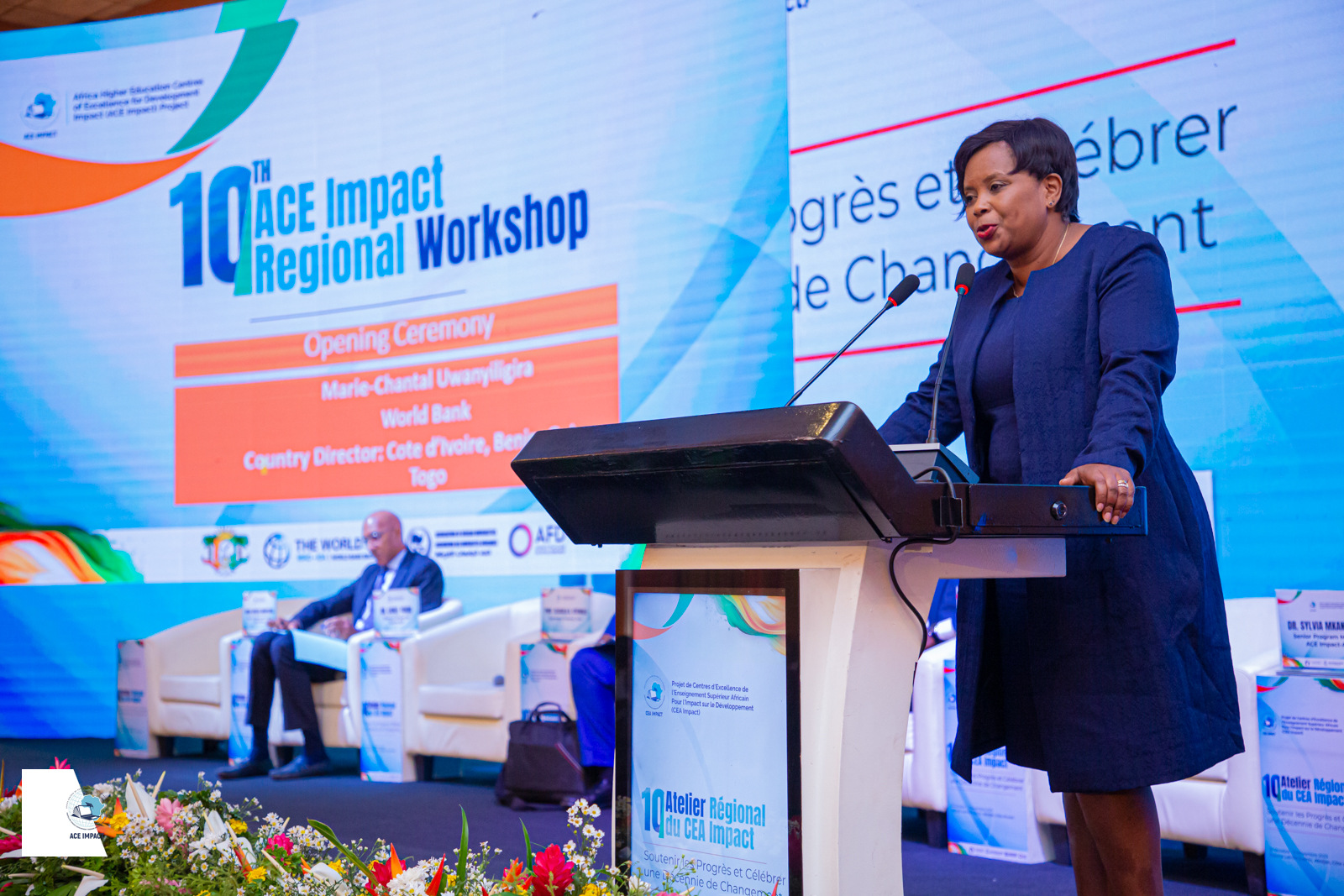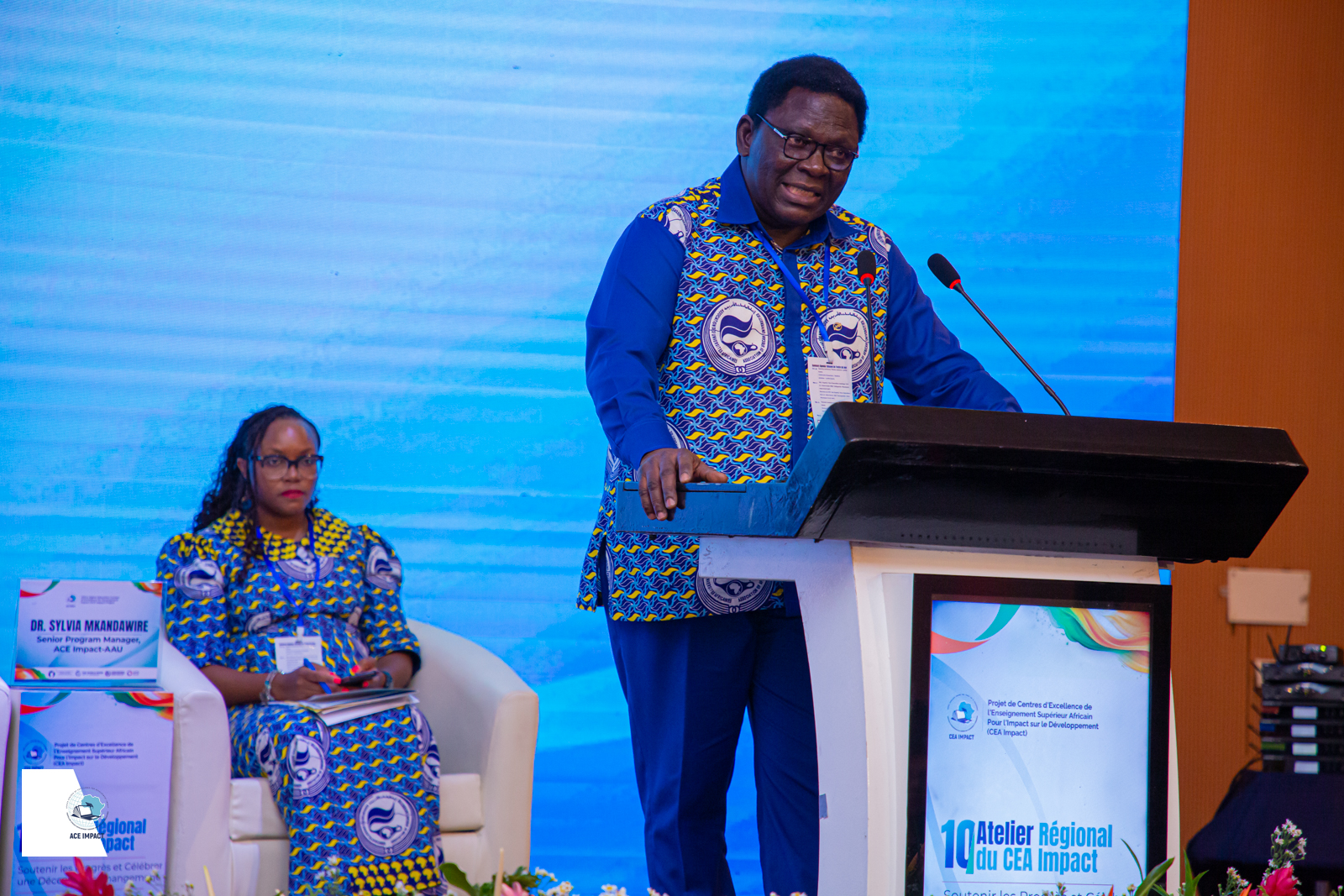ACEs Share Lessons on Sustainability at 10th Regional Workshop
Sustainability is a critical aspect of any higher education-funded project. Beyond securing initial funding, it is crucial to explore tactical avenues for long-term sustainability through strategic partnerships and collaboration, effective resource management, and the establishment of revenue-generating initiatives.
Now, more than ever, discussions on the sustainability of the centers of excellence under the Africa Centers of Excellence for Development Impact have become more crucial. The project has since 2019 been supporting 53 emerging and existing centers of excellence in West Africa and Djibouti. These centers with initial funding support from the World Bank have been committed to reshaping the African higher education landscape by offering high-quality programs that tackle developmental challenges.
Four (4) years into the project, the participating centers of excellence have amassed a remarkable array of success stories to share in terms of innovative solutions, robust training and programs, increased student enrollment, international accreditations, successful revenue generation from external sources, and community engagement.
During the 10th ACE Impact regional workshop held in Abidjan, Cote d’Ivoire on October 31, 2023, selected twelve (12) centers of excellence were given the platform to share some best practices that have contributed to the center’s successes as well as sustainability lessons across the ACEs with a focus on innovation, leadership, education, and financial integration.
Innovation and Sustainability
Leveraging innovations is one of the key areas that centers of excellence can capitalize on to sustain the project beyond the World Bank funding. Centers such as OAU ICT-Driven Knowledge Park (OAK PARK), the Center for Food Technology and Research (CEFTER), and the Center for Training and Research in Water Sciences and Technologies (CEA 2IE), are leading the charge in developing innovative solutions capable of attracting external revenue to sustain their respective centers of excellence.
During the workshop, the Center Director for OAK PARK, Prof. Sola Aderounmu outlined the Center’s strategic approach toward achieving sustainability through innovation. The center currently prides itself on a portfolio of about nine groundbreaking products that are projected to play a vital role in securing substantial income streams. These pioneering innovative solutions include the development of an Autonomous Robot that combines temperature reading, environment disinfection, and social interaction capabilities, the creation of a “Low-cost Android Phone,” and the establishment of a “Cyber Range” dedicated to simulating mission-critical systems for cybersecurity research, among other exhilarating endeavors. These innovative products are presently in various stages of the commercialization process, with the aim of transforming them into revenue-generating assets. The center’s efforts and commitment to attaining sustainability through innovative solutions is further driven by its existing network of five spin-off companies. These spin-off businesses have displayed admirable performance and are actively contributing to the financial support OAK-PARKs various activities and initiatives.
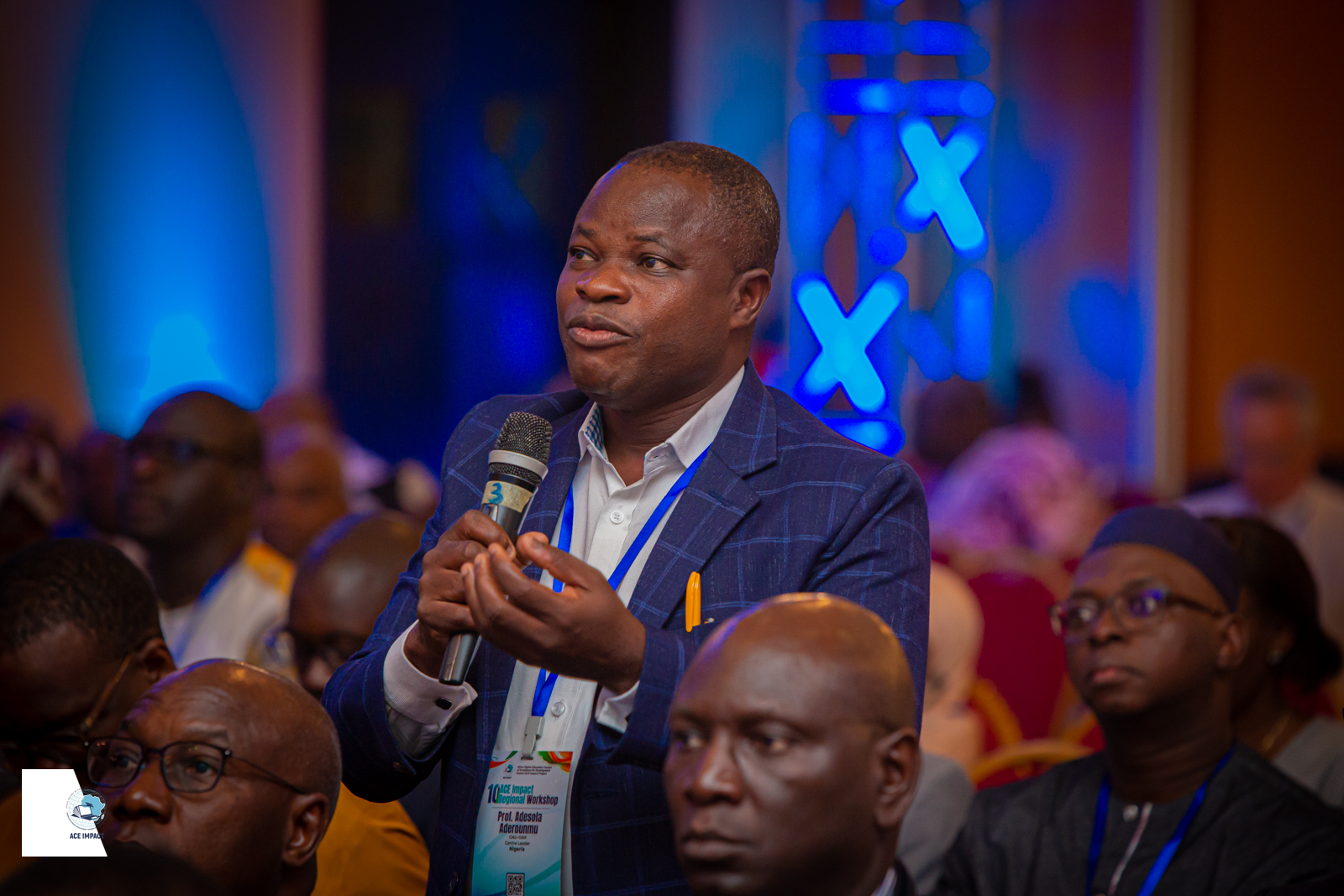
CEFTER stands as an exemplar of how innovation can be harnessed to ensure the sustainability of the Centers of Excellence. The center has spearheaded a multitude of student research projects that have received official recognition from Nigeria’s regulatory authority (NAFDAC), these solutions revolve around transforming cassava into innovative food products, such as high-quality cassava flour and biscuits. Following the commercialization of this innovation, CEFTER secured a large-scale government contract to produce 1.6 million cassava biscuits for students across Nigeria. The Center Director, Barnabas Achakpa Ikyo stressed the importance of community support, government endorsement, and effective branding in their endeavors. Notably, CEFTER’s alumni have extended their innovative impact, with one establishing a successful cassava flour business in Cameroon and another venturing into tomato cultivation and processing. This demonstrates the center’s outstanding capacity to launch profitable endeavors and encourage innovation outside of its walls, having a long-lasting, global influence.
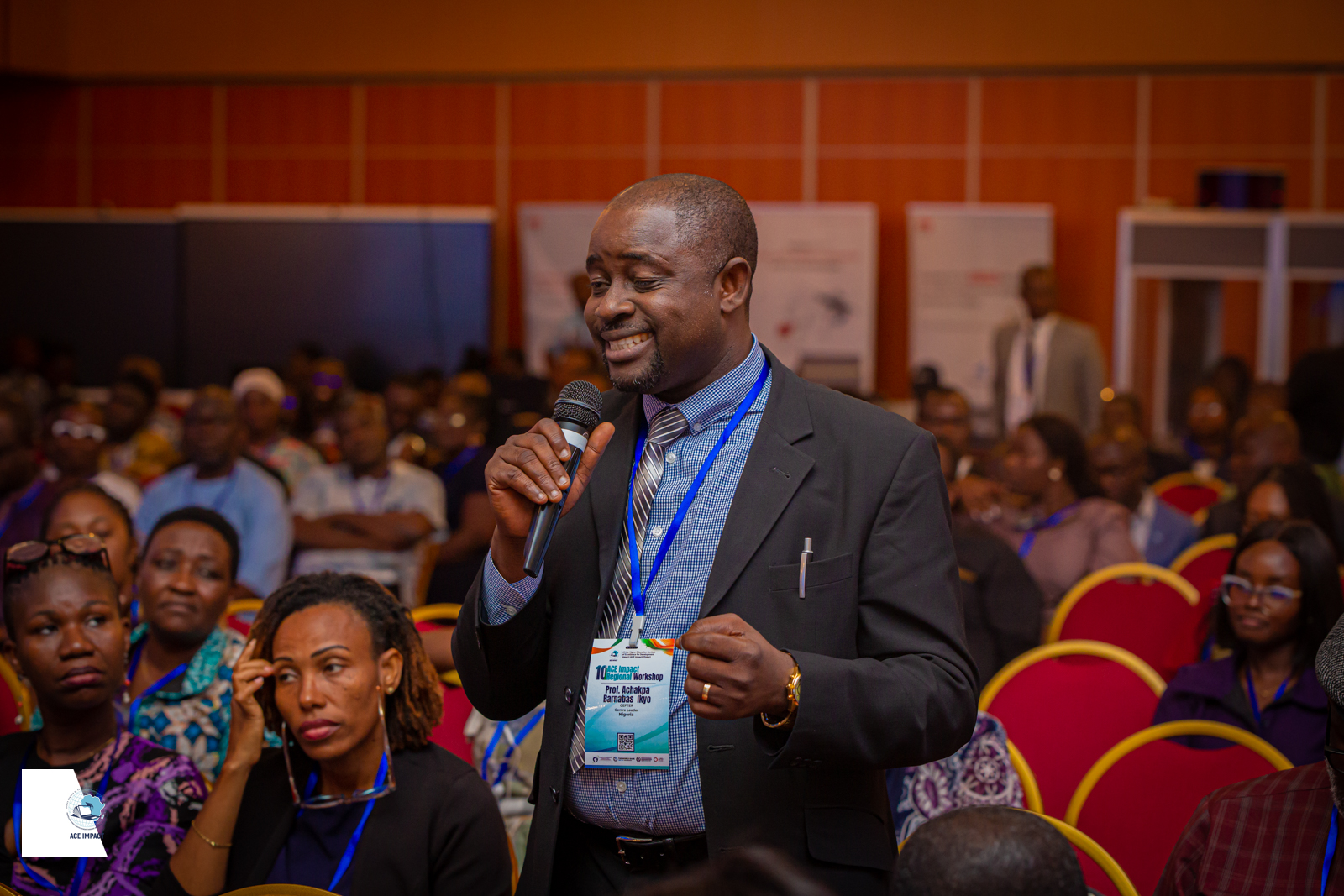
In Burkina Faso, CEA-2iE has dedicated close to a decade to fostering innovation and entrepreneurship as a cornerstone of its long-term sustainability. Beyond the ACE Impact project, the center has proactively invested in initiatives such as the establishment of a FabLab to nurture and bolster innovation. This commitment has resulted in tangible results, as the center has successfully nurtured a diverse range of innovations, including 3D printing, laser cutting, robotics, virtual reality, and more. Notably, CEA-2iE is currently engaged in the production of Geopolymer binders using local materials from Burkina Faso to stabilize compressed earth bricks, offering solutions to pressing societal challenges. Furthermore, the center’s vision reaches beyond immediate applications – it aims to utilize these innovations to ensure its own sustainability. This demonstrates its commitment to advancing society as well as ensuring its sustained success in the fast-paced world of innovation and entrepreneurship.
Leadership and Sustainability
The West Africa Center for Cell Biology of Infectious Pathogens (WACCBIP) serves as a shining example of the remarkable accomplishments attainable through effective leadership. In line with its mandate of developing home-grown African leaders. Young Scientists, Dr. Peter Quashie and Dr. Yaw Bediako assumed leadership roles during the COVID-19 research efforts, leading to groundbreaking results in sequencing Covid-19 genomes. These accomplishments not only contribute to financial sustainability but also foster valuable partnerships and collaborations for the center. Addressing the challenge of a limited female leadership pool in academia, the center has adopted an inclusive approach to actively empowering female scientists to take on leadership roles. The center has demonstrated its effectiveness in fostering the growth of young scientist Dr. Bediako, who successfully established the biotech company Yemaachi. These accomplishments highlight the importance of concerted efforts in inclusive leadership and sustainability, providing other project centers aiming for sustainability with insightful lessons.
Adding up to how leadership could be leveraged to attain sustainability, the Center Director for the African Center of Excellence for the Recovery of Waste into High Value-Added Products CEA VALOPRO, Prof. Benjamin Kouassi YAO emphasized that to initiate sustainability discussions, it is imperative for staff members to fully understand project requirements and gain the support of the host university’s administration and staff, all of which relies on strong leadership. The center’s leader highlighted effective strategies from CEA VALOPRO, including organizing training sessions to ensure the staff’s clear understanding of the project’s objectives, and further stressed the centers role in addressing the University’s needs through targeted initiatives, such as establishing a fitness room and refurbishing laboratories among others, which have improved the living and working conditions of staff
Research and Sustainability
Research can be very daring, however, if done thoroughly will attract partnerships, collaboration, and funding for sustainability. The presentation on the African Center of Excellence for Genomics of Infectious Diseases (ACEGID) brought to light some of the center’s achievements resulting from high-quality research, including the establishment of a globally recognized Early Warning System for Pandemic (SENTINEL). Furthermore, ACEGID has developed a rapid and precise diagnostic tool based on CRISPR technology for SARS-CoV-2 and has made strides in creating a vaccine for the management and control of the virus. To sustain the research agenda, the center invested in robotics to boost its throughput for human and pathogens sequencing, as well as in cutting-edge super high throughput Next Generation Sequencers and related equipment. It also started translating genomic information into products.
The Africa Center of Excellence in Coastal Resilience (ACECoR) , since its inception, has been dedicated to championing research-driven regional economic development. It delivers demand-driven scientific information to inform national and regional policy development as well as professional training initiatives that draw industry partners and other organizations to promote a sustainable ocean economy. Through quality post-graduate training, the center has amassed a total of 104 publications in a span of 5 years, with citations stemming from ten (10) countries in Africa. The significant contributions of these research results are highlighted by the grants and partnerships attracted by the center, including a sizeable $2 million grant from the West Africa Coastal Areas Management Program.
Education and Sustainability
While centers explore diverse means of attaining sustainability, offering quality education remains a priority . In terms of Education and Sustainability, the African Center of Excellence in Mathematics and ICT (CEA MITIC) has been announcing its relevance in Senegal through its robust training programs. It has been strengthening collaboration with the socio-industrial sector through the development of short training programs. Adapting to the evolving educational landscape since the onset of the COVID-19 pandemic, the center has adopted a hybrid training approach, seamlessly integrating face-to-face and online components. To extend its impact, the center trains teacher-researchers in relevant fields such as project writing, as well as training of networks to support regionalization.
According to Prof. Daouda MAMA, the Center Director of the Center of Excellence in Water and Sanitation (C2EA), one of the significant challenges encountered at the beginning of the project was the low number of female enrollments and regional students in short courses. Currently, the center has attracted a remarkable female enrollment across its degree programs with women now comprising 30% of Ph.D. students and 27% of Master’s students. This achievement is in line with the ACE Impact project’s objective of gender inclusivity. As a result, C2EA has experienced an uptake in enrollments, enhancing its prospects for forming valuable partnerships and collaborations, and further reinforcing its dedication to sustainable growth and development in terms of education.
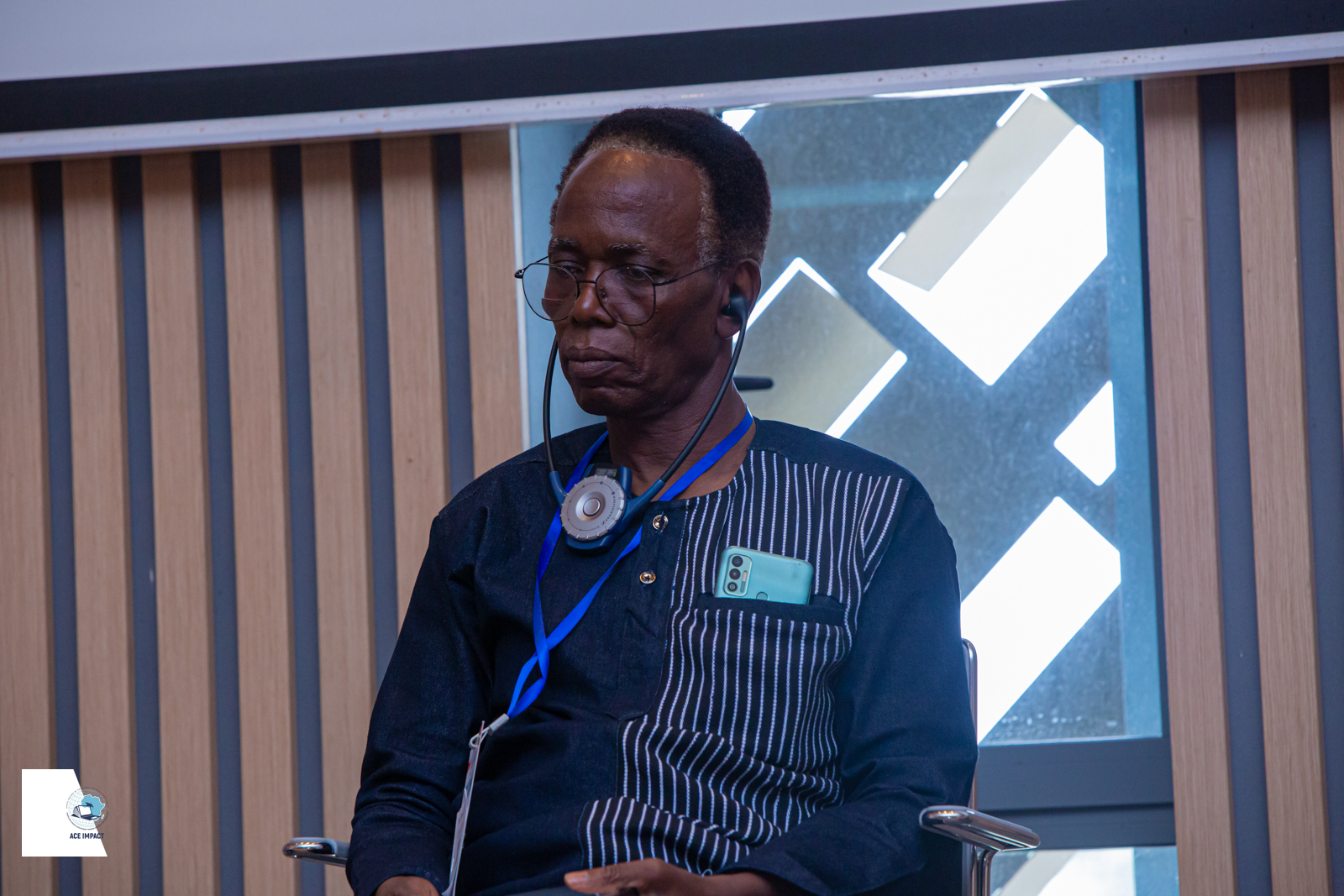
WACCI – Financial Diversification
During the Workshop, Centers were urged to prioritize endowment as a key approach for achieving sustainability, as big ideas attract implementing and scaling partners. The center director for the West Africa Center for Crop Improvement (WACCI), Prof. Eric Yirenkyi shared valuable insights, mentioning that his center has initiated discussions with ETH Zurich to explore opportunities for mobilizing African centers of excellence into entities capable of securing funding.
WACCI’s compelling results, including the release of 279 crop varieties, 3 successful public-private partnerships for seed scaling, $62 million attracted by alumni, and the training of nearly 6,000 individuals, have positioned it well to attract funding and form strategic partnerships. Prof. Danquah highlighted that financial diversification and sustainability could be achieved by expanding partnership networks and collaborating with influential figures and policymakers to present innovative ideas. This approach has already drawn attention and support from development partners, practitioners, and researchers globally.
University Integration
In the ACE Impact project, universities are the backbone of every Center of Excellence, and the centers rely on university support for their sustainability. Integration of the center into the university is essential to ensure long-term viability. ACEDHARIS sets a notable example by placing its staff and research fellows on the university payroll, sharing postgraduate program fees equally, offering paid online course delivery, and establishing a commercial unit within the center, all contributing to its sustainability and strong university partnership.
The ACE Impact regional workshop provided a platform for Centers to exchange invaluable insights on sustainability. The lessons learned and best practices in innovation, leadership, education, research, financial diversification, and university integration will not only ensure the project endures beyond its initial funding but also make significant contributions to Africa’s education and beyond.
